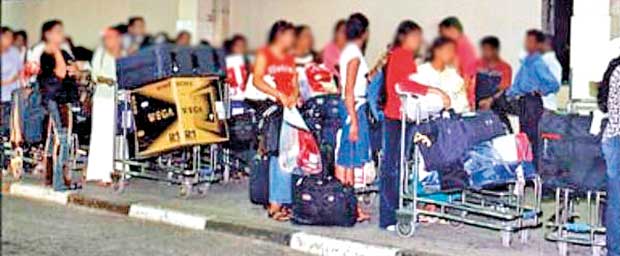Reply To:
Name - Reply Comment
Last Updated : 2024-04-20 20:10:00
 Saudi Shari ah court has sentenced one of our women there to death by stoning. Her offence was indulging in a sexual liaison out of wedlock with a fellow Sri Lankan. (The man has also been sentenced to 100 lashes)
Saudi Shari ah court has sentenced one of our women there to death by stoning. Her offence was indulging in a sexual liaison out of wedlock with a fellow Sri Lankan. (The man has also been sentenced to 100 lashes)


Add comment
Comments will be edited (grammar, spelling and slang) and authorized at the discretion of Daily Mirror online. The website also has the right not to publish selected comments.
Reply To:
Name - Reply Comment
On March 26, a couple arriving from Thailand was arrested with 88 live animal
According to villagers from Naula-Moragolla out of 105 families 80 can afford
Is the situation in Sri Lanka so grim that locals harbour hope that they coul
A recent post on social media revealed that three purple-faced langurs near t